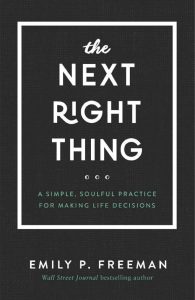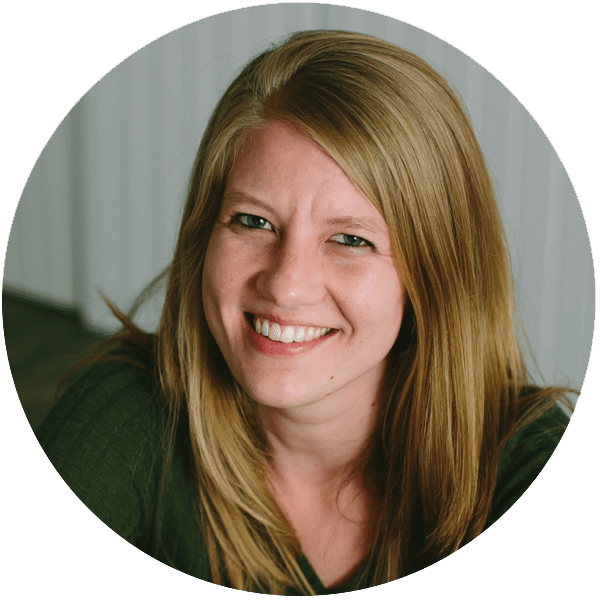
The Next Right Thing
A Simple, Soulful Practice
for Making Life Decisions
Emily P. Freeman
Revell, 256 pages
Reviewed by Anna Cornell | February 28, 2020
I have always been a rather hasty decision maker. Sitting in a place of unresolved tension has never been my spiritual gift. However, the older I get, the more I have gained appreciation—often against my will—of the value those unresolved spaces hold.
Some decisions require time to percolate. Some relationships need months to develop. Some strategies are better formulated after one more night’s sleep. And as much as I want to be productive as I wait for the clarity I need, it is humbling to know that sometimes God speaks most clearly when I am completely still. Emily Freeman’s book The Next Right Thing is dedicated to “anyone who’s ever made a pro/con list in the middle of the night.” It is a refreshing resource for people like me who want to move forward efficiently in making decisions in life and work, but who would benefit from guidance in how to do so with careful attention to God’s voice and timing (especially when the process happens a lot slower than some of us would choose!).
The concept of doing “the next right thing” comes from the Big Book of Alcoholics Anonymous which states, “We earnestly pray for the right ideal, for guidance in each questionable situation, for sanity, and for the strength to do the right thing.” May the church continue to learn from the culture of raw humility and wisdom displayed in groups like AA!
But how do we know what the next right thing is for each of us? How do we discern what God might want while also paying attention to our own longings and desires? Thankfully, Freeman shows us that our own deepest desires and God’s desires for us are almost always intertwined. She provides a framework and some helpful questions to help us get to the heart of why we might choose a certain way forward. For example, “In this decision, am I being pushed by fear or led by love?” This sort of question forces us to face our underlying motivations honestly and has the potential to open up space for us to choose the more courageous path.
Freeman also deconstructs the notion that we must have absolute certainty before we can move forward. When we are paying attention to our motivations and desires, we are free to take the next step with love, instead of being paralyzed by the impossible expectation that we have to see the big picture before it is revealed to us.
And recognizing that pastors are notoriously bad at maintaining healthy boundaries between home and work, I heard a poignant ring in such statements as, “Choose your absence so that your presence will have more impact.” After reading this book, I see that developing the ability to say “no” is a key ingredient to being able to move forward into our next wholehearted “yes.” Freeman’s words offer a powerful challenge for readers to reflect on the content and impact of our decisions, while also freeing us to move forward in trust, knowing that God is God and we are not.













